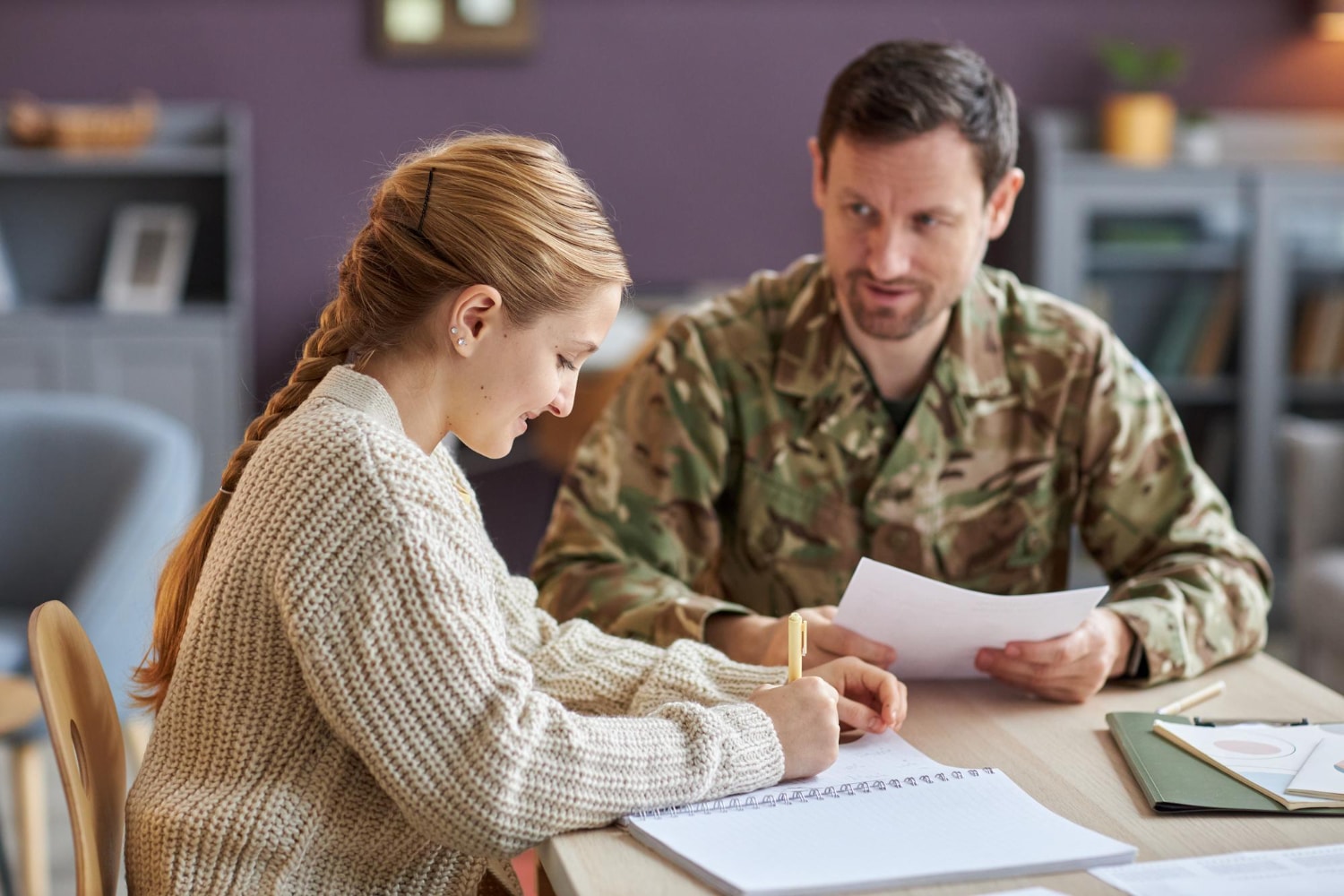Programs helping veterans transition to civilian life

Programs helping veterans transition to civilian life offer essential resources such as job placement, mental health support, and community involvement to ensure a smooth and successful adjustment to civilian life.
Programs helping veterans transition to civilian life are crucial in aiding those who have served to adapt to civilian life. Have you ever wondered what support is available for our veterans? Let’s dive into the various resources available.
Understanding the challenges veterans face
Veterans face unique challenges when transitioning to civilian life. Understanding these challenges is the first step in providing effective support. Many veterans experience difficulties related to employment, mental health, and social integration.
Common Challenges
One of the largest hurdles veterans encounter is finding a suitable job. Often, their military skills do not directly translate to civilian job requirements, leaving them feeling underqualified. Additionally, adjustments to a more relaxed workplace culture can be overwhelming.
- Difficulty translating military experience to civilian jobs
- Limited access to job training programs
- Social isolation from peers and family
- Challenges with mental health issues like PTSD
Another significant issue involves mental health. Many veterans suffer from conditions such as PTSD or depression, which can hinder their ability to function in daily life. This can make it even more challenging to seek the help they need.
Moreover, social integration poses another barrier. Veterans may feel disconnected from civilian life, struggling to form new friendships or reconnect with family. Often, they undergo a profound shift in identity that can complicate relationships.
Overall, understanding these challenges is essential for developing programs that truly support veterans. With tailored resources, we can help them navigate these hurdles and build fulfilling civilian lives.
Key programs designed for veteran transition

There are several key programs designed specifically to assist veterans in their transition to civilian life. These programs offer resources and support to address the challenges veterans face as they leave military service.
Employment Programs
One of the most crucial types of programs focuses on employment. These initiatives help veterans acquire the skills and experience needed for the civilian workforce. Many organizations provide training, networking opportunities, and resume workshops.
- Job placement services
- Skills development workshops
- Networking events with employers interested in hiring veterans
- Internship programs tailored for veterans
In addition to employment, veterans often need support with mental health. Various programs focus on mental wellness and provide therapy, support groups, and counseling services that are sensitive to the unique experiences of veterans.
Support Networks
Another vital aspect of these programs is their emphasis on building support networks. Encouraging veterans to connect with each other can reduce feelings of social isolation and foster a sense of community. Many organizations host social events, peer mentorship programs, and community integration activities.
These initiatives work together to create a holistic approach to veteran transition. Understanding which programs are available can empower veterans to seek the help they need and take control of their success in civilian life. Programs are continually evolving to meet the needs of veterans and help them thrive after service.
Success stories of veterans benefitting from programs
Many veterans have found success through various programs, showcasing how the right support can make a significant difference. These success stories highlight the impact of dedicated resources aimed at helping veterans transition smoothly into civilian life.
John’s Journey
John served in the Army for over a decade and faced challenges when he returned home. With the help of a local veteran support program, he attended job placement workshops. John learned how to translate his military skills into a civilian resume. He eventually secured a job as a project manager at a tech company, proving that veterans can excel in various fields.
Maria’s Transformation
Maria, a Navy veteran, struggled with PTSD after her deployment. She reached out to a mental health program specifically tailored for veterans. Through counseling and group therapy, Maria began to heal. Her journey inspired her to become an advocate for mental health awareness, helping others find similar support.
- John’s job placement success illustrates the importance of tailored training.
- Maria’s transformation emphasizes the need for mental health resources.
- Both stories showcase the value of community support.
- These are just examples of how programs help veterans thrive.
As we learn from these stories, it becomes clear that veterans can achieve incredible things with the right guidance and support. Each success story serves as an inspiration, reminding us of the strength and resilience inherent in our veterans.
Resources for families of transitioning veterans

The transition to civilian life can be tough not just for veterans but also for their families. Understanding the available resources can help families support their loved ones during this significant change.
Support Groups
Families can benefit from support groups designed to address the unique challenges they face. These groups provide a safe space for sharing experiences and gaining insights from others in similar situations. Here, family members can connect, offering encouragement and advice.
- Local community centers often host support meetings.
- Online forums and webinars provide flexible options.
- Participation helps in building a strong support network.
- Families learn about effective communication strategies with veterans.
Additionally, many organizations offer educational resources specifically aimed at the families of veterans. These resources can provide valuable information on navigating benefits, accessing healthcare, and understanding mental health issues.
Financial Assistance
Another significant resource is financial aid. Numerous programs exist to help families with the costs associated with transitioning. These programs can help with bills, housing, and child care while veterans adjust to their new roles.
Finding these resources can reduce stress for families and provide a more stable environment for veterans to reintegrate. With the right support and information, families can play a vital role in helping veterans thrive.
The role of community in supporting veterans
The community plays a crucial role in supporting veterans during their transition to civilian life. This support can take many forms, from emotional encouragement to practical help like job placement and social interaction.
Building Connections
Getting involved in community events can help veterans forge valuable connections. Many organizations host activities that promote interaction between veterans and civilians. This fosters a sense of belonging and reduces feelings of isolation.
- Local veteran support groups hold regular meetings.
- Community centers often offer programs specifically for veterans.
- Networking events can open doors to job opportunities.
- Social gatherings allow veterans to share experiences and build friendships.
Community involvement is not only beneficial for veterans but also enriches the lives of civilians. By understanding the unique challenges veterans face, community members can provide practical assistance and a listening ear.
Volunteer Opportunities
Many community organizations rely on volunteers to help implement programs for veterans. Whether it’s mentoring, providing tutoring for job skills, or simply spending time together, these volunteer efforts make a difference. When community members actively participate, they show veterans that they are valued and appreciated.
Overall, a strong community can aid veterans in their journey by offering support, resources, and a network of friends. With these connections in place, veterans can more effectively navigate the challenges of transitioning to civilian life.
In summary, supporting veterans as they transition to civilian life is vital for their success and well-being. With the right programs, community involvement, and resources, we can help veterans overcome challenges and thrive. It’s important to recognize their needs and provide a network that fosters connection and growth.
By coming together as a community, we can ensure that those who have served our country receive the appreciation and assistance they deserve.
FAQ – Supporting Veterans in Transition to Civilian Life
What programs are available to help veterans find jobs?
Many programs focus on job placement, offering workshops, resume writing assistance, and networking events tailored for veterans.
How can families of veterans support their loved ones?
Families can participate in support groups, access educational resources, and offer emotional support during the transition process.
What role does the community play in helping veterans?
The community can provide a network of support, offer volunteer opportunities, and host events that promote social interaction for veterans.
Are there mental health resources specifically for veterans?
Yes, numerous organizations offer mental health services, including counseling and peer support groups, tailored to the unique needs of veterans.





